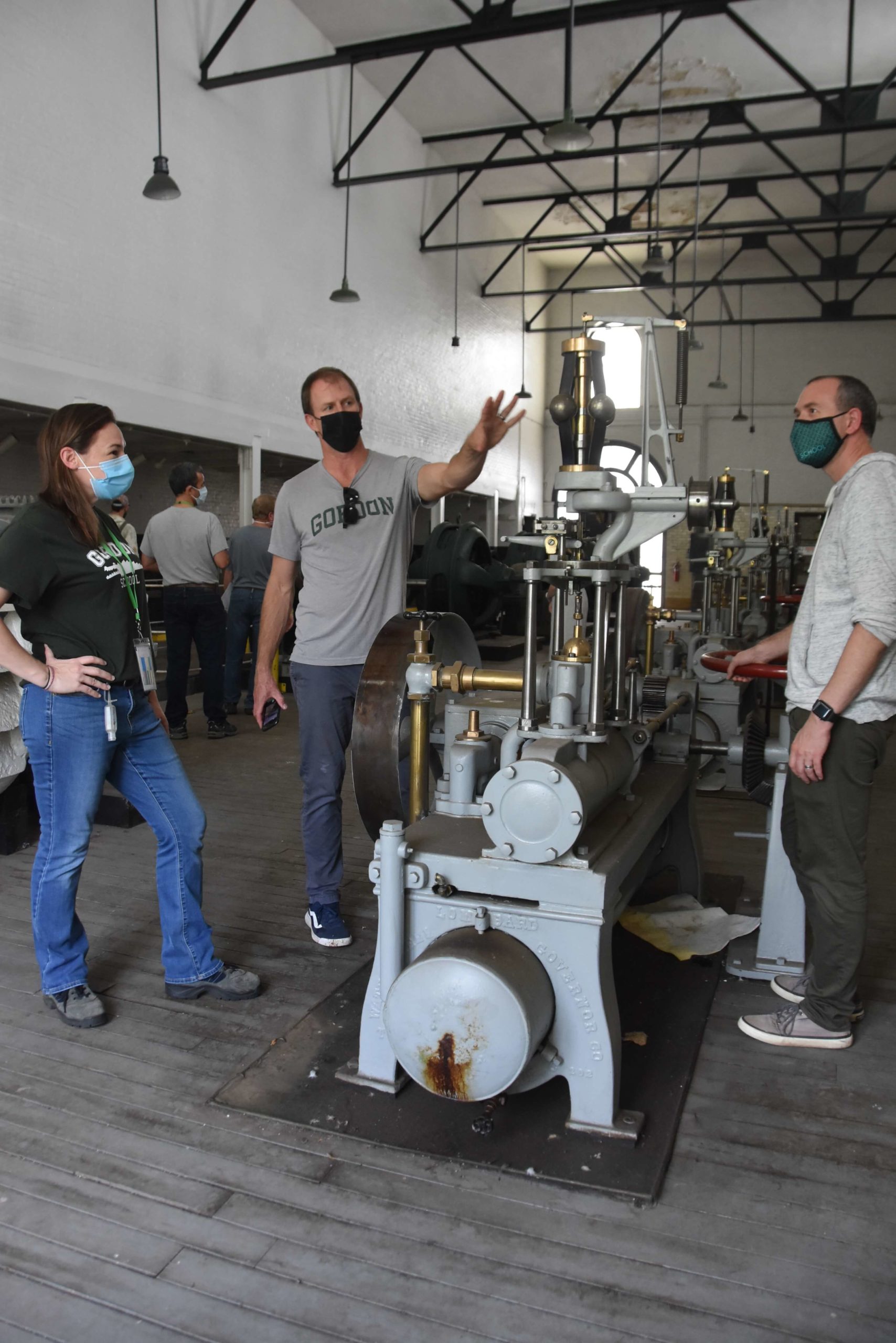Consortium of Rhode Island Schools and Nonprofits Partner with Local, Historic Hydropower Facility – Pawtucket Hydroelectric Project will be a source of inspiration for students
(Pawtucket, RI) — A consortium of seven independent Rhode Island schools and one industrial arts education center today announced it has partnered with Gravity Renewables, a national owner, operator, and developer of small hydroelectric power plants, to enter into a 20-year net metering agreement for the power from the Pawtucket Hydroelectric Facility located on the Blackstone River.
The historic partnership allows the consortium to substantially underwrite energy costs while supporting reinvestment in locally produced hydroelectric power and creating educational opportunities for Rhode Island students.
“Today’s students live in a world that is increasingly defined by complex global events like pandemics and climate change,” Dr. Noni Thomas López, Head of School at the Gordon School. “At Gordon, we are proud to have the opportunity to supplement classroom learning with real-world experiences to connect our students to the impact they have on society. This partnership will provide our students with a living laboratory that will help them understand the interdependency of energy, infrastructure, policy and community in shaping the future.”
The consortium, led by the Gordon School in East Providence, R.I., also includes St. Andrew’s School (Barrington, R.I.), Wheeler School (Providence, R.I.), La Salle Academy (Providence, R.I.), The Grace School (Providence, R.I.), Lincoln School (Providence, R.I.), and Highlander Charter School (Warren and Providence, R.I.), as well as The Steel Yard (Providence, R.I.), a non-profit industrial art center. Together they represent 3,500 students from across the Ocean State and Southeast Massachusetts in pre-K through 12th grade, as well as adult learners.
Net metering benefits to the consortium will begin immediately. Additionally, the consortium will be developing a curriculum that draws upon the Pawtucket Hydroelectric Project’s unique contribution to local history and culture, technological progress, clean energy, and climate solutions.

When Gravity approached the schools with the idea of this partnership, school leaders were intrigued, said Patrick G. Meehan, La Salle Academy’s Chief Financial Officer. “They showed us that we could reduce our schools’ energy costs while simultaneously supporting a historical Rhode Island energy source and expanding our educational offerings,” Meehan said.
National Grid and its predecessors have been involved at the hydropower site for a century and continue to be critical to the project through their interconnection process.
“National Grid is a strong supporter of supporting energy and engineering programs for students,” said Mark Garland, Account Manager Customer Connections, Customer Energy Integration – Rhode Island. “We are pleased that a project that has served our region for so long will now also be a learning opportunity for the next generation of energy leaders.”
The History
Waterpower in the Blackstone River Valley dates back hundreds of years. In 1793, Slater Mill, began spinning yarn from raw cotton using the force of the river; the mill’s use of waterpower earned its recognition as the “birthplace of the American Industrial Revolution.” Nearly 100 years later, just 300 yards downstream of Slater Mill, local industrialists started construction of the Bridge Mill Power Station. It opened in 1896 and provided power from steam and water to the region until being deactivated in 1971. As fuel costs escalated after the oil embargo, the station was rehabilitated in the mid 1980’s. Now known as the Pawtucket Hydroelectric Facility, the project continues to provide clean, reliable electricity to the region. The net metering partnership is the next chapter in the clean energy renaissance which can be attributed to progressive partners in the Ocean State.
“Small, low impact hydropower has been built into the fabric of New England for well over a century,” said Omay Elphick at Gravity Renewables. “This partnership reinvests in the Pawtucket Hydroelectric Project so that future generations can learn and benefit from it.”
The Environment
The Pawtucket Hydroelectric Facility is one of only 300 hydropower projects nationwide certified as Low Impact by the independent nonprofit Low Impact Hydropower Institute (LIHI) based on its ability to meet or exceed LIHI’s strict low-impact criteria.
“The Pawtucket hydroelectric project is an important example of how Low Impact Certified® hydropower not only enhances the environment but also can also give community organizations, like the Consortium, the peace of mind that their energy project is consistent with their values,” said Shannon Ames, LIHI’s Executive Director.
“Finding a way for students to connect to the larger world is fundamental to our education mission,” said Nick Terry, lower school science teacher at the Gordon School.
“The partnership with Gravity will allow our students to experience science and history up close giving them the perspective and skills they need to be engaged citizens,” Terry said.
###
Press Contact:
Julie Smith-Galvin, Media Relations, 781-606-1233, julie@gravityrenewables.com
Partnership Contact:
Omay Elphick, 401-864-8788, Omay@gravityrenewables.com
About the Consortium
The consortium was created to capture the benefits and economies of scale of collaborating and focusing on projects that improve institutional finances, provide educational opportunities, and support our local communities and environment. Founding members of the consortium include:
The Gordon School, www.gordonschool.org
St. Andrew’s School, www.standrews-ri.org
Wheeler School, www.wheelerschool.org
The Steel Yard, www.thesteelyard.org
La Salle Academy, www.lasalle-academy.org
The Grace School, www.thegraceschool.org
Lincoln School, www.lincolnschool.org
Highlander Charter School, www.highlandercharter.org
To learn more about the Low Impact Hydropower Institute, visit www.lowimpacthydro.org.
